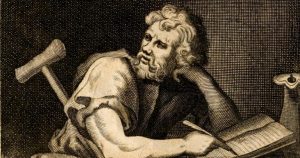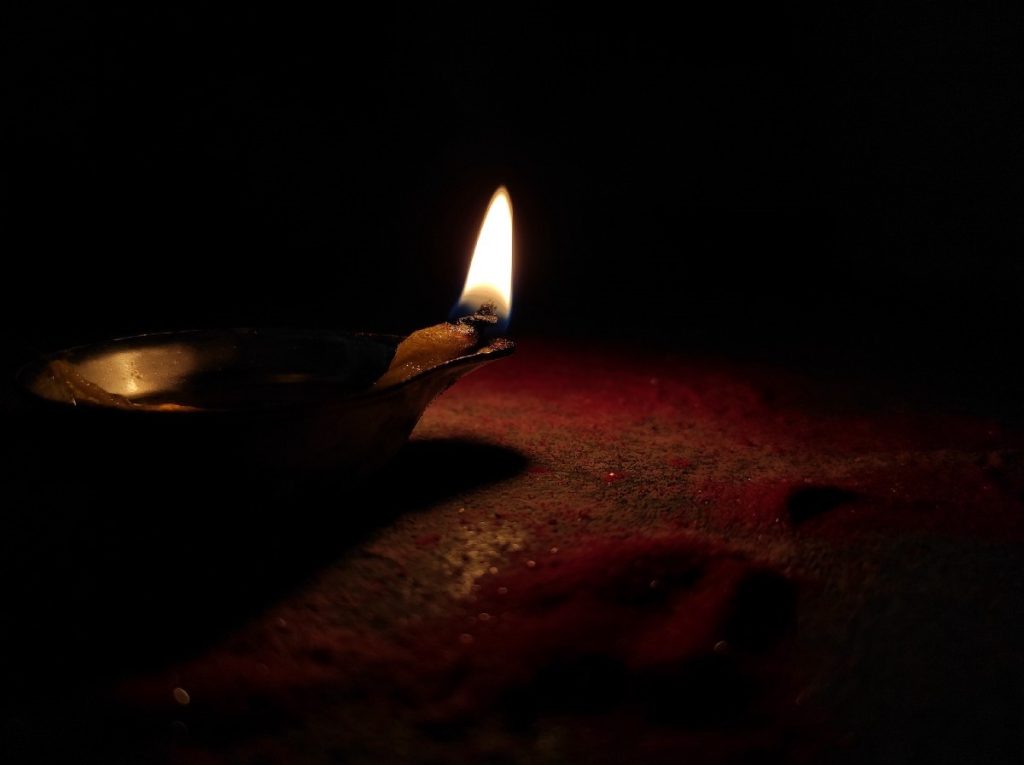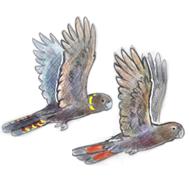‘Enchiridion’ is an unsuasl word. It is essentially a handbook or manual, but has greater meaning.
The word has Greek origins, meaning ‘that which is held in the hand’. The classic enchiridion being ‘The Enchiridion of Epictetus‘ from the ancient Greek Hellenistic classic stoic ethical philosophy of Epictetus [c 50 – c 135 AD].

Epictetus
Few these days study philosophy, let alone the Classics such as the Greek Philosophers.
Epictetus taught that philosophy is a way of life and not simply a theoretical discipline. To Epictetus, all external events are beyond our control; we should accept whatever happens calmly and dispassionately.
This is relevant to running a tour operation like Nature Trail – external events are beyond our control. We can try our best to plan and adjust for them, but when they happen a tour operator should accept the reality and calmly and dispassionately make and act on a wise decision.
External events are beyond our control include unforecast dangerous weather, customer problems, road and track closures, government policy and rules (like regional bushfire emergency declaration and pandemic lockdowns), equipment and vehicle failures, illness, injury, incidents and emergencies, etc.
Individuals are responsible for their own actions, which they can examine and control through rigorous self-discipline. Epictetus maxim was that one flourishes by living an virtuous ethical life. His teachings were written down and published by his pupil Arrian in his Discourses and Enchiridion.
We consider this apt for us running a tour operation.
Application to a Tour Operation
What makes the word ‘enchiridion’ distinct from being just a handbook or a manual, is that a manual or handbook specifies to a user how to perform certain tasks and use equipment.
Whereas an ‘enchiridion’ prescribes codes of conduct, a moral set of rules and the aid of philosophy for a wise person and virtuous leader to adopt a mindset and attitude to deal with experiences in life and so reap the benefits.
The Tour Operator’s Enchiridion is our summary of what quality tour operating is about for best practice tour operators to read as part of their ongoing personal education.
Tour guides of ilk are encouraged to be trip leaders then tour directors and ultimately tour operators, if they have the ability and interest. Tour operating can and should be a mutually rewarding life journey.
Epictetus: From slave to philosopher
Out of interest, Epictetus, the philosopher of stoicism, was born nearly 2,000 years ago in Hierapolis (present-day Pamukkale in mountainous south eastern Turkey) as a slave in a wealthy household.
Epaphroditus, his owner, gave him the permission to pursue liberal studies and it is how Epictetus discovered philosophy through the Stoic Musonius Rufus who became his teacher and mentor.
Later, Epictetus obtained his freedom shortly after Roman Emperor Nero’s death and started teaching philosophy in Rome for nearly 25 years. This lasted until Emperor Domitian famously banished all philosophers in Rome.
Epictetus fled to Nicopolis on the west coast of Greece where he founded a philosophy school and taught there until his death.
“That’s what makes Stoicism so powerful: it can provide timeless principles to help us in both good and bad fortune, no matter our station our life.”

Epictetus style oil lamp
Nature Trail’s training was piecemeal and disjointed
There currently exists no dedicated training course in Australia to take an individual along a educational pathway to become a tour operator. The process is almost on par with becoming an air charter operator, less having to be a millionaire entrepreneur first.
Founder and Managing Director of Nature Trail, Steve, attended the Australian Army’s Royal Military College at Duntroon, then completed a Business Degree at Monash University majoring in management and leadership disciplines. Steve recalls the degree study units of most benefit being Managerial Decision Making, Leadership Theory, Accounting Theory and Strategic Management.
However, with all three educational institutions, Steve felt the training lacked a philosophical base and individually focused educational growth path. Rather, each course adopted a one-size-fits-all prescription with a hobbled collection of study units to impart programmed knowledge and skills of ‘how’ to do various tasks. None was about the ‘why?’. In all three cases there was no explicit policy approach, nor codes of conduct, nor advancement pathway for the student to gain wisdom and to be recognised for it on an individual basis.
Instruction and assessment were tainted by the unsupervised over-riding ignorant opinions of individual staff telling students this is what you do, no questions allowed. These courses have progressed and evolved little over their lifespans. One graduates as a compiling ‘doer’, not as as wise ‘thinker’ who may indeed be able to conceive superior ways of doing things and being more resilient to uncertainties. These courses are for followers not leaders.
Epictetus’ counter philosophy about such ‘opinions’:
“We are like travellers at an inn or guests at a stranger’s table; whatever is offered we take with thankfulness, and sometimes, when the turn comes, we may refuse; in the former case we are a worthy guest of the deities, and in the latter we appear as a sharer in their power.
Anyone who finds life intolerable is free to quit it, but we should not abandon our appointed role without sufficient reason. The Stoic sage will never find life intolerable and will complain of no one, neither deity nor human.
Those who go wrong we should pardon and treat with compassion, since it is from ignorance that they err, being as it were, blind. It is only our opinions and principles that can render us unhappy, and it is only the ignorant person who finds fault with another.
Every desire degrades us, and renders us slaves of what we desire.
We ought not to forget the transitory character of all external advantages, even in the midst of our enjoyment of them; but always to bear in mind that they are not our own, and that therefore, they do not properly belong to us. Thus prepared, we shall never be carried away by opinions.”
Steve started his involvement in tours back in 1990 casually driving a mini-bus for Triangle Tours out of the town of Kununurra in the East Kimberley Region of Western Australia. It was a useful wage while Steve trained to obtain his commercial helicopter licence with Golden West Helicopters that year.
In 2013, Steve applied his interest in running tours by firstly obtaining a Certificate IV in Guiding at TAFE NSW’s Sydney Institute of Technology at Ultimo. He then went on to gain a series of related qualifications (2014-2018) before establishing his tour operation, Nature Trail, in 2019.
So, where are we going with this idea of ‘The Tour Operator’s Enchiridion’?
Well, early days, but it’s basically along the lines of…what it takes to build a successful and valuable Tour Operation, while maintaining a happy and healthy work-life balance.
We are grateful to one of our competition tour operators based in the Blue Mountains, Tread Lightly EcoTours and its owner Tim Tranter. It was Tim who agreed to meet with Steve back in 2012 at a Katoomba’s Café Zuppa (which no longer exists) and freely explain the pathway components required to set up a tour operation from scratch – the skills training, qualifications, certifications, licensing, insurances, etc.
Many thanks Tim.
(further content pending)

References:
[1]
[2] ‘Epictetus’ (Greek stoic philosopher), ^https://en.wikipedia.org/wiki/Epictetus
[3]
Back to Top of Page
This webpage updated 8th January 2023.


![]()
